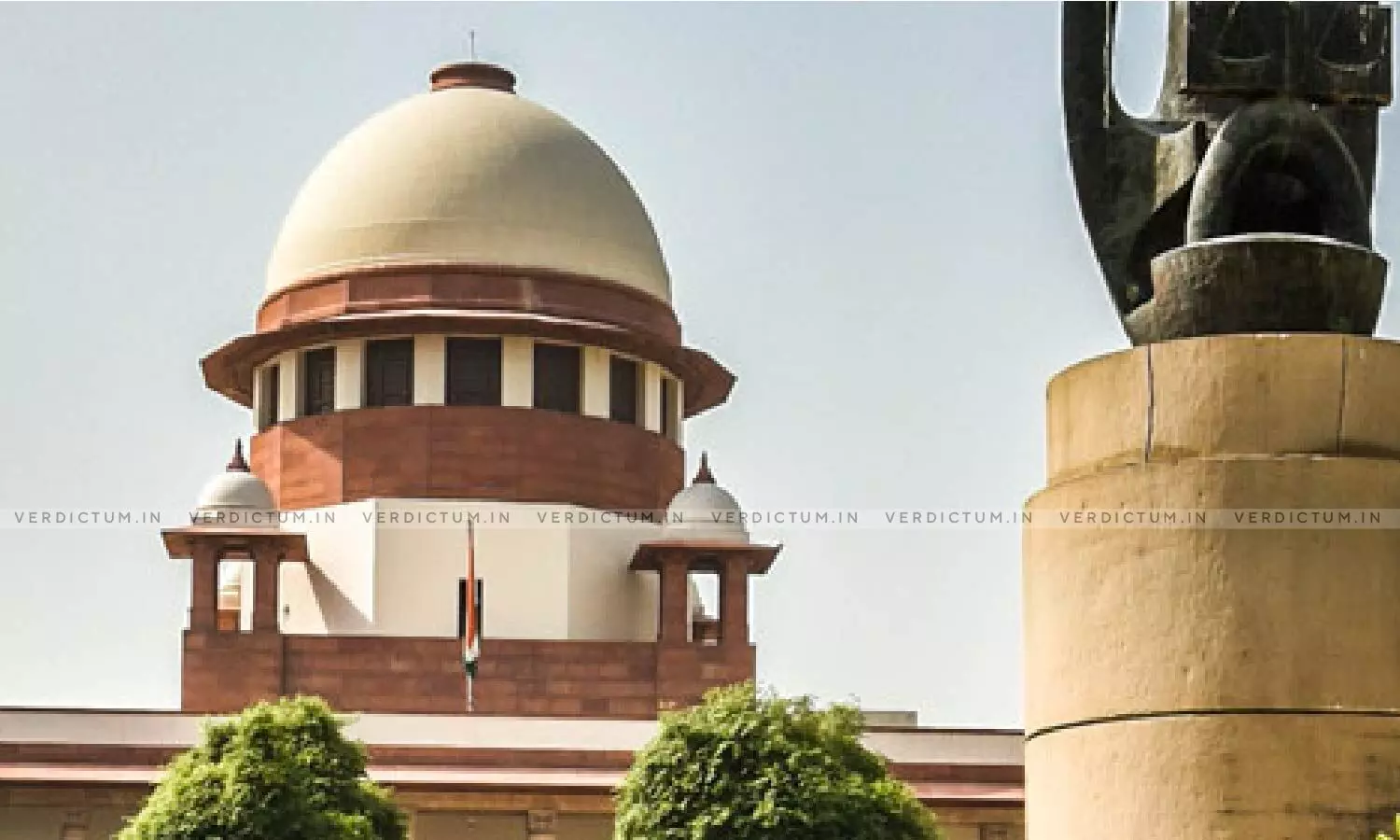
Court’s Duty To Release Accused On Bail Once Violation Of Article 22(1) Constitution Is Established Even If Statutory Restrictions On The Grant Of Bail Exist: SC
 |
|The Supreme Court clarified that once the arrest is held to be vitiated due to violation of Article 22(1), the accused cannot remain in custody even for a second.
The Supreme Court held that it is the duty of a Court to release an accused on bail once a violation of Article 22(1) of the Constitution is established even if statutory restrictions on the grant of bail exist.
The Court allowed the Appeal filed by the Appellant alleging violation of his right under Article 22(1) of the Constitution as he was not informed of the grounds for his arrest. The Court clarified that the information about the arrest is completely different from information about the grounds of arrest, therefore, “Mere information of arrest will not amount to furnishing grounds of arrest.”
A Bench of Justice Abhay S Oka and Justice Nongmeikapam Kotiswar Singh gave separate but concurring Judgments. The Court held, “When a violation of Article 22(1) is established, it is the duty of the court to forthwith order the release of the accused. That will be a ground to grant bail even if statutory restrictions on the grant of bail exist. The statutory restrictions do not affect the power of the court to grant bail when the violation of Articles 21 and 22 of the Constitution is established.”
Senior Advocates Kapil Sibal and Shyam Divan represented the Appellant, while Senior Advocates Sidharth Luthra and Basant R. appeared for the Respondents.
Brief Facts
The Appellant was arrested in connection with an FIR registered for offences under Sections 409, 420, 467, 468, and 471 read with Section 120-B of the IPC. He alleged that he was taken into custody without being informed of the grounds or reasons for his arrest, in violation of his fundamental rights.
The Appellant argued that the delay in producing him before the Magistrate was violative of Section 57 of the CrPC and Article 22(2) of the Constitution, which mandates that an arrested person be produced before a magistrate within 24 hours. He also argued that during his hospitalisation, he was handcuffed and chained to his hospital bed.
Court’s Reasoning
The Supreme Court held that “Mere information of arrest will not amount to furnishing grounds of arrest” and therefore, the “police should always scrupulously comply with the requirements of Article 22”
“Once it is held that arrest is unconstitutional due to violation of Article 22(1), the arrest itself is vitiated. Therefore, continued custody of such a person based on orders of remand is also vitiated. Filing a charge sheet and order of cognizance will not validate an arrest which is per se unconstitutional, being violative of Articles 21 and 22(1) of the Constitution of India. We cannot tinker with the most important safeguards provided under Article 22,” the Court explained.
Justice Nongmeikapam Kotiswar Singh explained that the constitutional mandate under Article 22(1) was incorporated in the statute under Section 50 of the CrPC (Section 47 of BNSS).
“The purpose of inserting Section 50A of the CrPC, making it obligatory on the person making arrest to inform about the arrest to the friends, relatives or persons nominated by the arrested person, is to ensure that they would able to take immediate and prompt actions to secure the release of the arrested person as permissible under the law. The arrested person, because of his detention, may not have immediate and easy access to the legal process for securing his release, which would otherwise be available to the friends, relatives and such nominated persons by way of engaging lawyers, briefing them to secure release of the detained person on bail at the earliest,” the Court explained.
The Court clarified that when an arrested accused alleges non-compliance with the requirements of Article 22(1), the burden will always be on the Investigating Officer/Agency to prove compliance with the requirements of Article 22(1).
Accordingly, the Supreme Court allowed the Appeal.
Cause Title: Vihaan Kumar v. State of Haryana & Anr. (Neutral Citation: 2025 INSC 162)
Appearance:
Appellant: Senior Advocates Kapil Sibal and Shyam Divan; Advocates Vishal Gosain, Anuroop Chakravarti, M.S. Vishnu Sankar, Archit Singh, Zinnea Mehta and Athira G. Nair
Respondents: Senior Advocates Sidharth Luthra and Basant R.; AAGs Deepak Thukral and Arun Tewatia; Advocates Suhaan Mukerji, Adarsh Kumar, Sayandeep Pahari, Kartikeye Dang, Shariq Ansari, Tanmay Sinha, Saurabh Sachdeva, Pragya Upadhyay, Drishti Saraf, Raunak Arora, Sumedha Tuli, Kavinesh Rm, Naman Vashishtha, Sahil A. Garg Narwala, Shikhar Singhal, Honey Gola, Dipesh Singhal, Shourya Godara, Kapil Gaba and Pavitra Singh Sindhu; AOR Akshay Amritanshu